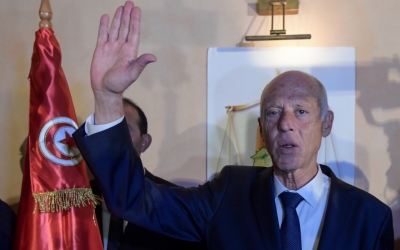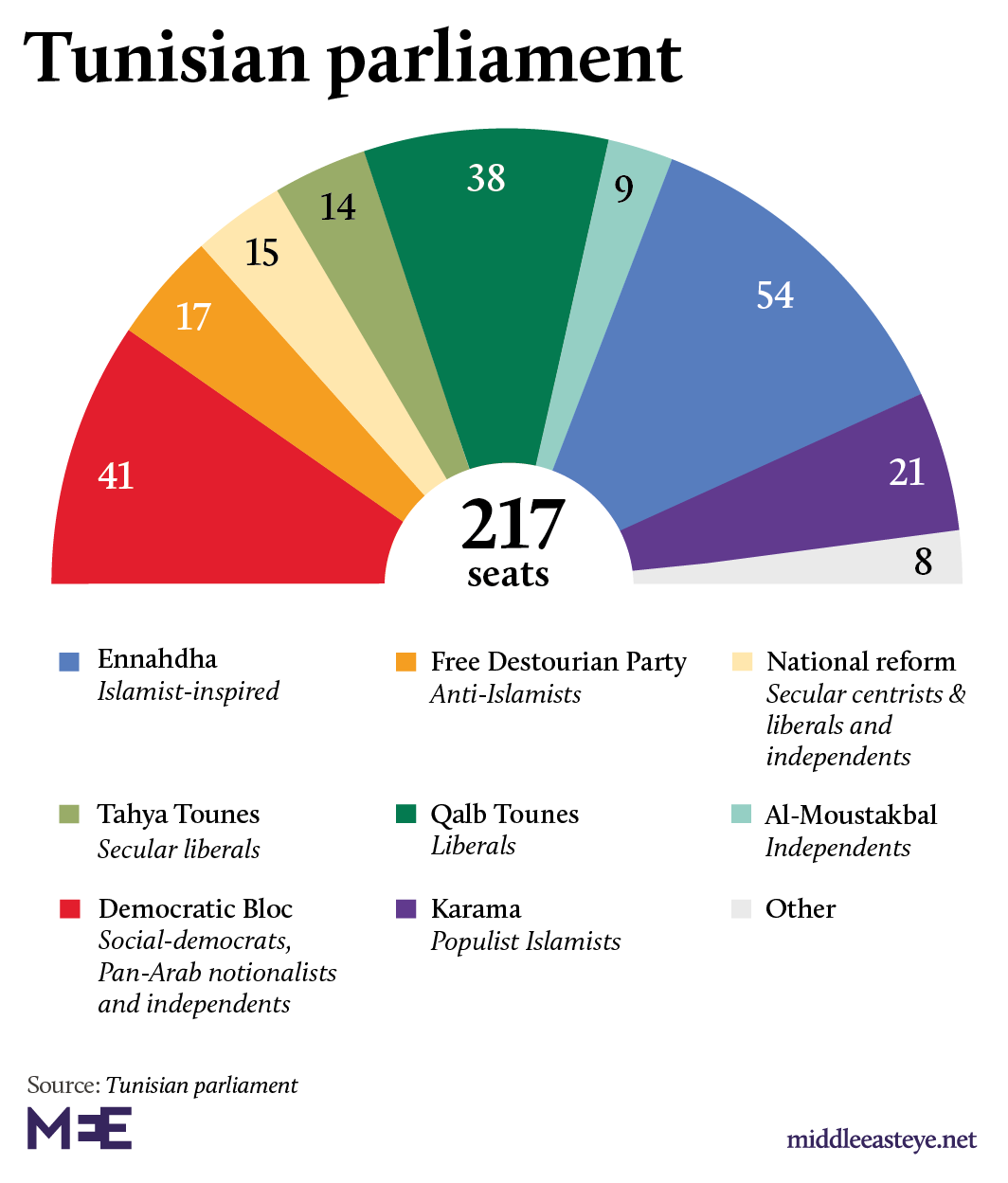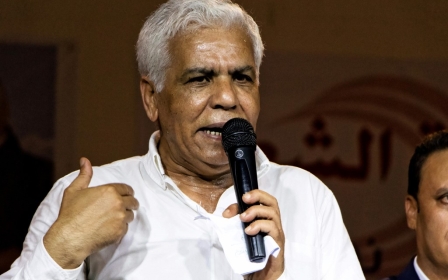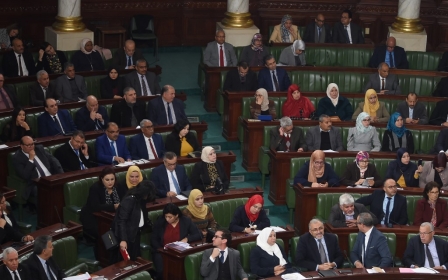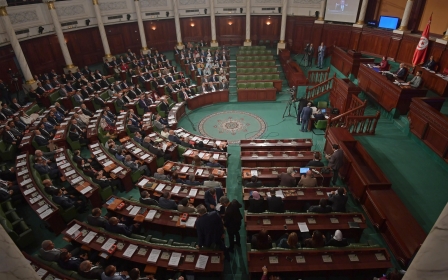Tunisian president chooses former finance minister to be PM
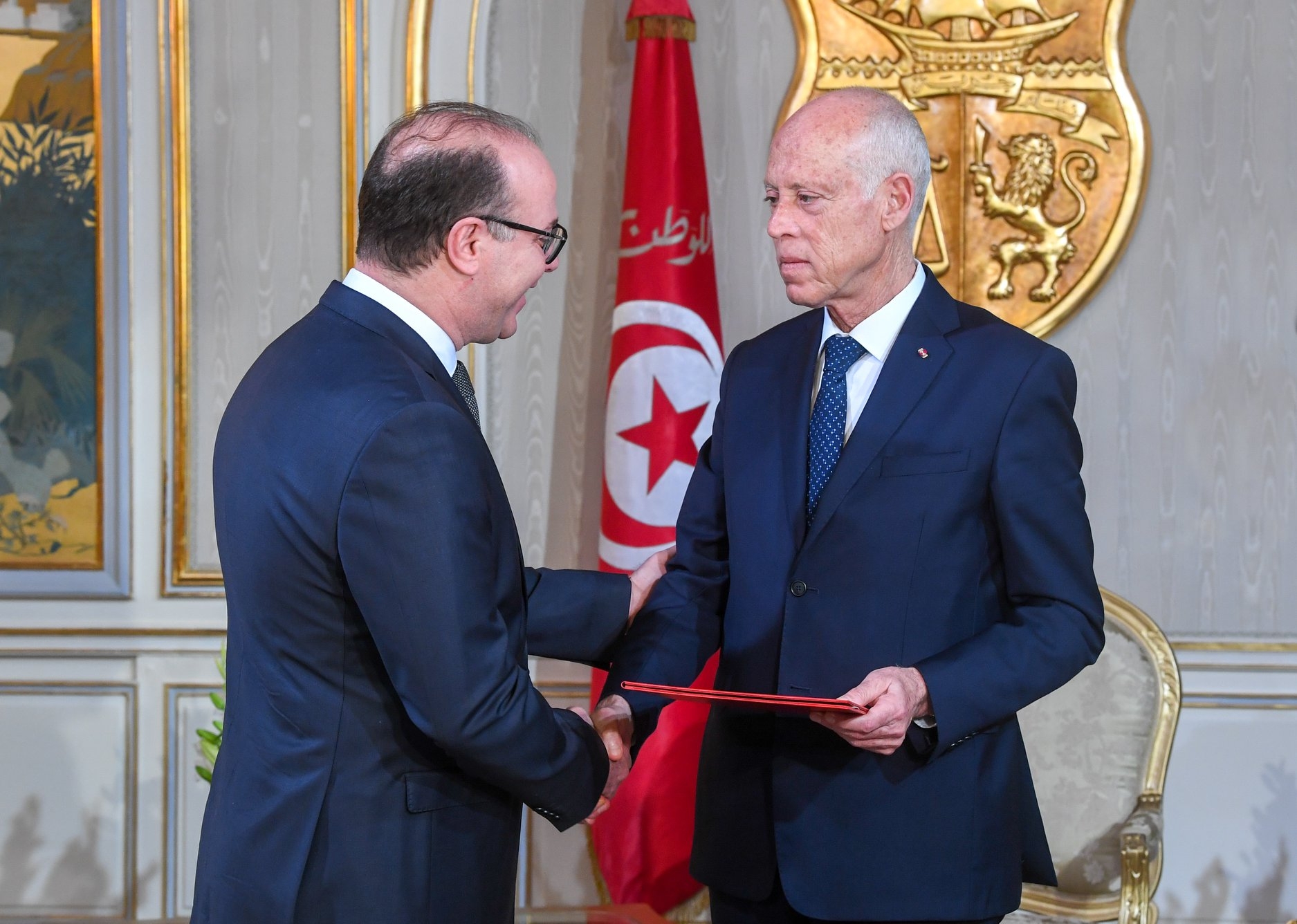
Tunisian President Kais Saied designated former finance minister Elyes Fakhfakh as prime minister, 10 days after parliament rejected a government proposed by an earlier nominee to the post.
According to a statement released by the Presidency on Monday, Saied exercised Chapter 89 of the constitution which allows the president to nominate a person he sees most capable of forming a government.
Fakhfakh has 30 days from Tuesday to form a coalition capable of winning a confidence vote in parliament by a simple majority, or there will be another election, the statement said.
The choice of Fakhfakh, 48, underscores the urgent economic decisions hanging over the country, following a decade of low growth, high public debt and high unemployment since the 2011 revolution that introduced democracy.
Fakhfakh, a former employee of the French energy company Total, served as finance minister in 2012 in the volatile period after the revolution and also worked as tourism minister.
The incumbent government of Youssef Chahed has been acting in a caretaker role since the October 6 parliamentary election in which the largest party, Ennahdha, took only a quarter of the seats.
The Muslim Democrats nominated Habib Jemli as prime minister in November, but his proposed government failed to win parliamentary backing and lost a confidence vote on 10 January.
Ennahdha have struggled to win support from the opposition and smaller parties, who are crucial to carve out the 109-seat majority needed to form a government.
"There is ample reason to be skeptical that Fakhfakh will be able to form a government," Sharan Grewal, a research fellow at the Brookings Institution, told Middle East Eye.
"Like Habib Jemli, he is not quite an independent, having served as a minister in the troika government. That already limits his appeal, and makes it unlikely he would get the support of PDL (Free Destourian Party) or Qalb Tounes. And he himself brings little additional popularity to the table, having received just 0.34 percent in the 2019 presidential elections.
"That said, there is one major difference between Fakhfakh and Jemli: Fakhfakh was nominated by Kais Saied, by far the most popular figure in Tunisia.
"If Fakhfakh can be portrayed as close to Saied, as Saied's favoured candidate, that can boost his popularity and allow him gather together the 'pro-revolution' clan (Ennahdha, Tayyar [Democratic Bloc], and Karama plus either Echaab or Tahya Tounes). No one wants to be seen as disagreeing with Kais Saied, especially heading into new elections."
Middle East Eye propose une couverture et une analyse indépendantes et incomparables du Moyen-Orient, de l’Afrique du Nord et d’autres régions du monde. Pour en savoir plus sur la reprise de ce contenu et les frais qui s’appliquent, veuillez remplir ce formulaire [en anglais]. Pour en savoir plus sur MEE, cliquez ici [en anglais].


